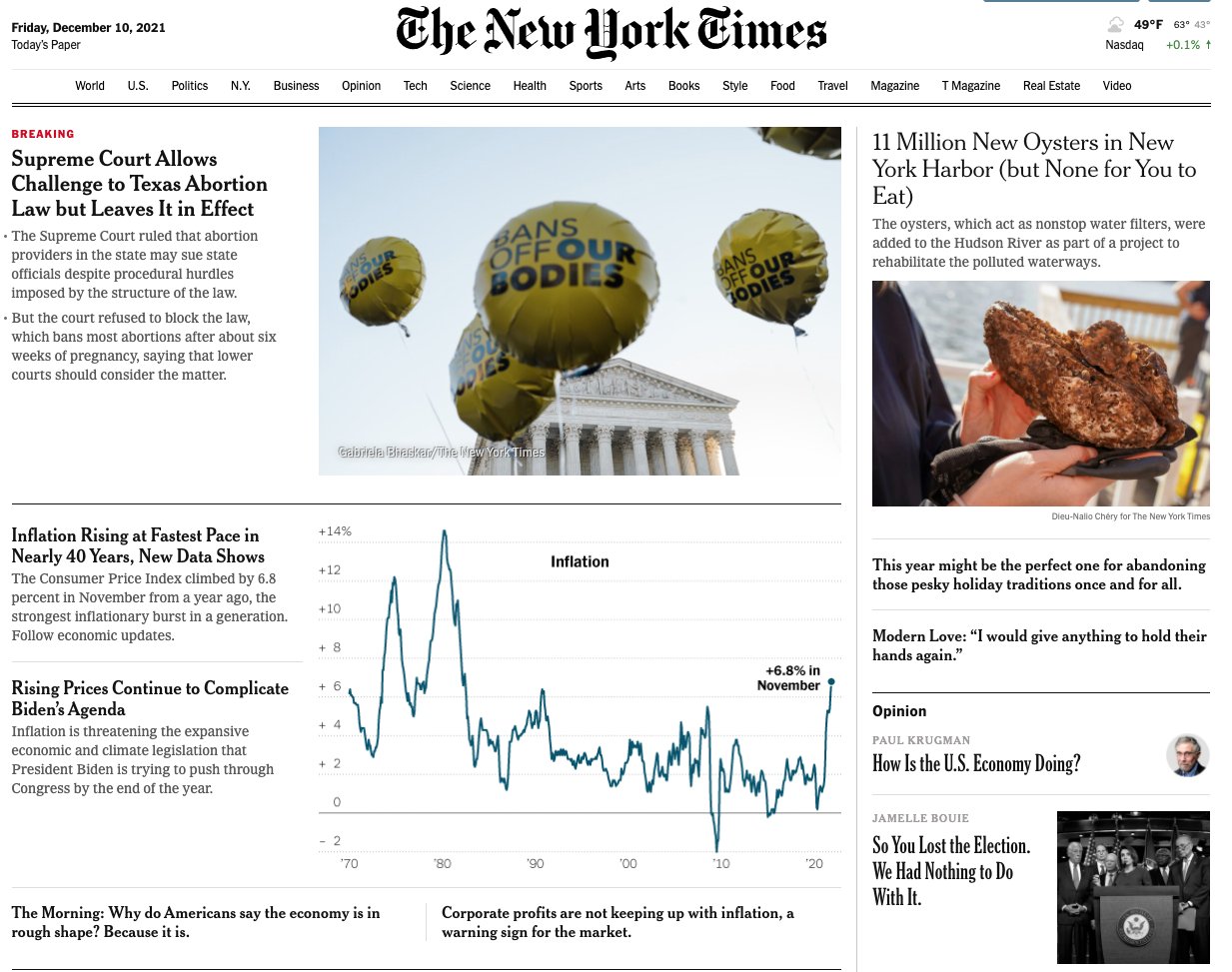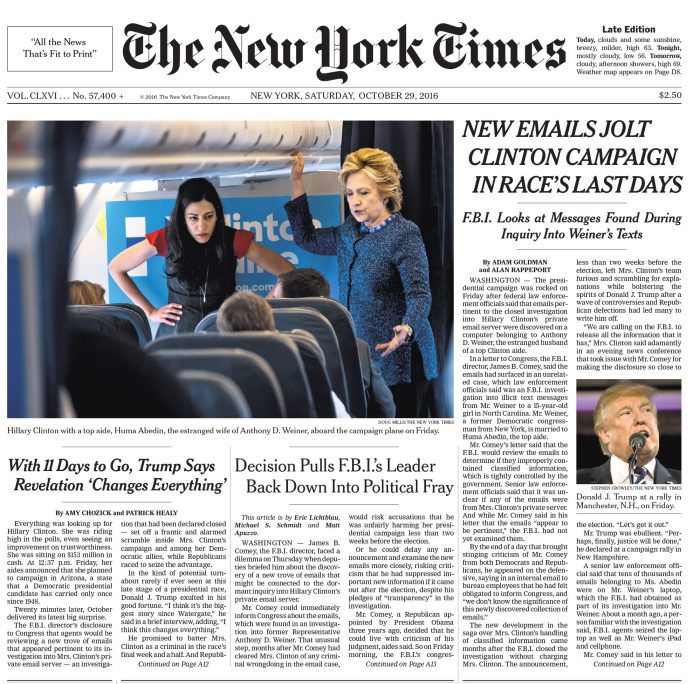Perhaps you have a problem with Lumen Learning?
Media Bias
https://courses.lumenlearning.com/bound ... edia-bias/
The most commonly discussed forms of bias occur when the media support or attack a particular political party, candidate, or ideology; however, other common forms of bias exist, including advertising bias, corporate bias, mainstream bias, sensationalism, and concision bias.
Advertising bias refers to when stories are selected or slanted to please advertisers; corporate bias refers to when stories are selected or slanted to please corporate owners of media; mainstream bias refers to a tendency to report what everyone else is reporting, and to avoid stories that will offend anyone. Sensationalism is a type of editorial bias in mass media in which events and topics in news stories and pieces are over-hyped to increase viewership or readership numbers.
[snip][end]
You may note I pointed to some of these issues earlier. I do
not have a degree in journalism, but I DID take some graduate work in mass communications research. But, in the interests of full disclosure, I DID write for my college undergraduate newspaper.
Both Zowie and I discussed sensationalism bias.
These biases are something other than 'simply' ideological.
Note that advertiser and corporate bias can only be exercised by executives making decisions about which stories to run, not the journalists writing the stories.
Advertising Revenue and Media Bias
https://www.informs.org/Blogs/ManSci-Bl ... Media-Bias
The authors document that newspapers bias their coverage in favor of car manufacturers that have advertised with them. In particular, newspapers reduce their negative coverage of the manufacturer's recall event more for manufacturers that have more advertising spending over the previous two years. This effect exists despite consumer-driven pressures pushing coverage in the opposite direction, as recalls are covered more in Metropolitan Statistical Areas (MSAs) with higher rates of ownership of the recalled vehicle.
[snip][end]
Cliff Notes Summary: correlation -- the more advertising revenue a particular car manufacturer spent on advertising in their publications, the less likely the publisher was to run stories that focus on adverse or negative coverage, notably manfacturer safety recalls.



